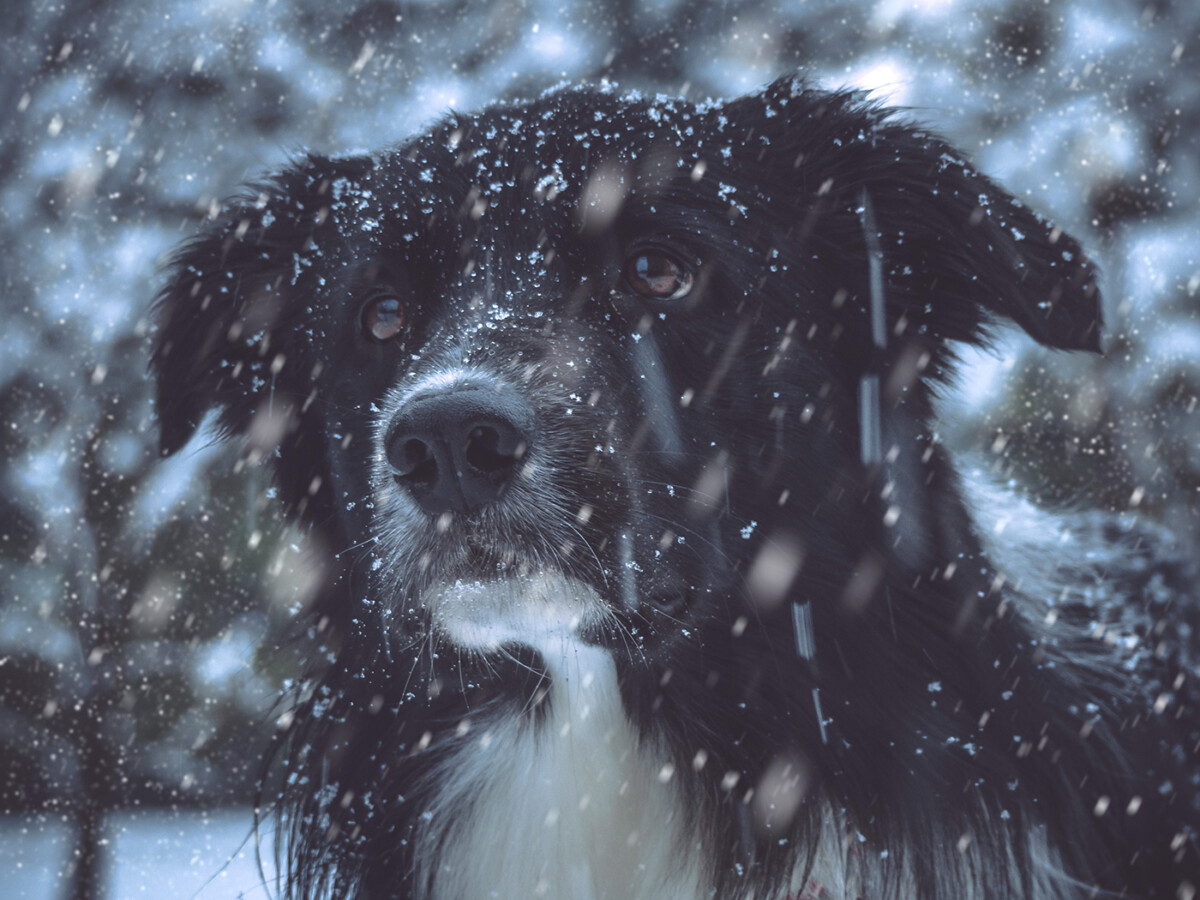
1. Warm Winter Wardrobe Unless it's pouring down with rain, motivating dogs to head out to exercise is not a real issue even in the depths of winter however some dogs are really sensitive to the cold. Judging by the looks we get on our walks, some people think that dressing up our dogs is a silly idea but in fact a winter dog coat or jumper can make a huge amount of difference to the comfort of your pet, especially for those hairless breeds, very small or senior dogs. And when it comes to pet fashion, never say never!
2. Winter-proof Bedding Your pet may spend more time lying down during the winter months, because just like us, the cold weather tends to slow them down to conserve energy and keep warm. In summer, our dogs make a beeline for the cold tiles and pretty much ignore their beds but comes winter, they seem to never have enough layers top and bottom and steal our bed... It's worthwhile investing in a thicker, warmer bed (ideally raised) in winter or at least a nice thick blanket to ensure your dog has somewhere comfortable nap throughout the day even if they do prefer sleeping with you at night! Another form of heat therapy for pets with joint and hip problems are pet heading pads, as the radiating warmth can alleviate pain and improve mobility in dogs with arthritis. They'll be less stiff and sore after a nap in a warm cosy bed.
3. Cosy Shelter All pets need a roof over their heads! If your pet tends to spend most of its time outside through the summer months, winter is the time to either allow your pet inside to keep warm or provide an adequate dog kennel or enclosed pen to protect them against the elements. These days, there are much better options available with companies offering custom-made fully insulated dog kennels that will keep your pets warm in winter and cool in summer. If your pets are left inside during the day, make sure they always have access to fresh clean water and don't forget to give them regular toilet breaks to avoid accidents!
4. Winter Grooming Grooming doesn’t stop in winter! We tend to give our dogs fewer baths because they usually dry up on the deck and it's not where they want to be on a cold rainy day so timing is essential. Make sure the water is warm and dry them off completely so that they don’t get a chill and who doesn't like a toasty warm towel straight from the dryer? As much as we're a fan of our own dogs' smells, it seems this enthusiasm is not shared by our guests? Using a moisturising shampoo and conditioner will not only keep their top coat and skin in good condition, it makes brushing so much easier! This winter, consider switching to a dry or waterless shampoo that can help lift out oils and dirt without the need for a rinse. You simply spray it onto your dog's coat, work it down into their fur either with your hands or by brushing, towel your dog to remove the excess and after the waterless shampoo dries, brush again. The cold weather often stimulates hair growth which can result in matting and skin problems so regular brushing is a must, especially for long-haired and double-coated dogs. Your dog's nose also needs a little bit of attention during the colder days. To keep your pet's nose moisturised and healthy, you could apply each day a thin layer of coconut oil, Vaseline or a dedicated nose and paw balm, like the Happy Jack. Co 'Tips & Toes' which contains hemp seed oil, organic shea butter and bees wax.
5. Senior Dog Care Our senior dogs have more sensitive joints and when the temperature drops, these aches and pains (like our own) can be much more painful and require more care and attention. Pet owners should be mindful of giving them age appropriate exercise regularly to keep their muscles supple and encourage blood circulation. Even an unmotivated dog will soon cheer up once their blood starts pumping and for those who are the lazy type in winter, exercising the dog is a great way to keep yourself motivated and battle ready for spring!
6. Winter Feeding How often have we read the advice that our dogs and cats will burn off more calories in winter than they do in summer because they are trying to keep themselves warm so we should feed them more? With 41% of dogs already overweight or obese in Australia, this has serious consequences on their health (causing a host of diseases) and reducing their lifespan. Personally we err on the side of caution with our dogs and keep their portions controlled all year round so that they don’t put on weight and avoid unnecessary extra treats unless training. However one thing we would encourage all pet owners to do is to include a high-quality dog supplement to boost your dog's immune system, gut and general wellbeing during the winter months (all year round if you can afford it). It is particularly important if you're feeding raw or home cooked meals as they may not meet all your dogs' nutritional needs. Winter can be a really tough time for older dogs with joint issues. In addition to these tips, giving them a specific joint supplement may also be beneficial.
7. Regular Vet Health & Wellness checks As soon as the restrictions are lifted to visit clinics, it’s a good idea to book your pets in for a health check-up with your vet because the cold weather can lower pets’ immune systems, making them more susceptible to health problems. For elderly pets, check-ups every six months are recommended to make sure any health problems are detected early and efficiently treated.